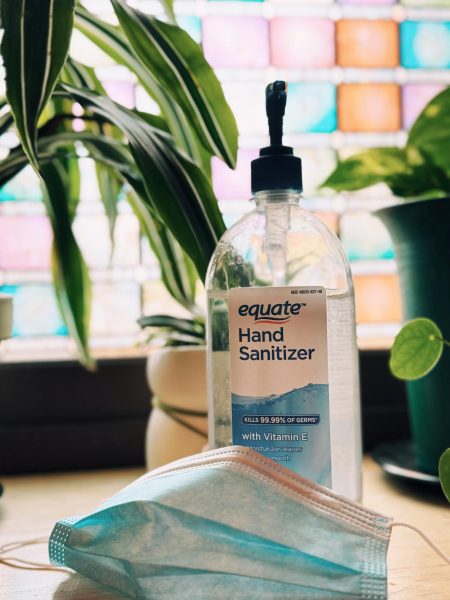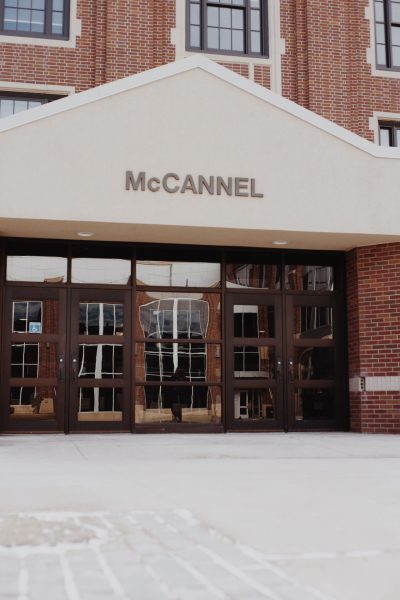Whoa, what happened to your leg
February 4, 2018
As careful as I was hiking down a steep descent on a mountain, all it took was a wrongly misplaced step to trip and fall on the rocky surface. To my horror, pain shot up through my entire left leg after I realized that while my body fell back-first onto my Camelbak, my foot remained wedged between two rocks.
As someone with an incredibly low tolerance for pain and who has never had an real injury, I admit to being caught in an emotional flurry of crying actual tears while also laughing hysterically (I found out that day that this was my natural reaction to unbearable physical pain.) I was also pretty angry that while I lay on the floor in distress, my two brothers were doing nothing but laugh at my clumsiness.
When I decided it was time to get up, they propped me on my right ankle and helped me down the mountain. I did my best to ignore the numbing pain and avert my eyes from my left ankle, which I no longer had any control over and became three times larger than normal as it dangled off my foot.
To make matters worse, as a member of an HMO insurance-holder, I wasn’t able to get treated until I was back home in Los Angeles: another day and a 5 hour drive away. My dad dropped me off at Urgent Care straight from the trip and I walked into a room overflowing with flu-infected people. After two hours in the waiting room, which closely resembled the quarantine zones in zombie movies, I saw a doctor who prescribed what would make my next several weeks at school miserable: 6 weeks of a fractured ankle boot and crutches to compliment it.
The one thing that I’ve learned since being on crutches is that you will be more stressed out than usual. Getting through simple activities that you take for granted, such as walking through (and opening) a door and trying to walk at the same pace as someone, will be made much more difficult. I learned to be strategic and planned anything I was going to do ahead of time, especially the trip back to Minneapolis.
Flying during the holidays was already stressful without the burden of being on crutches. Although being wheeled around LAX was convenient, avoiding snarky gazes of people who passed in the security line and the first class passengers and veterans who I beat to board the plane was not something that I was comfortable with.
The first week of spring classes on campus made the airport experience seem like a relaxing spa day. Grand Forks’ recent icy temperatures and lack of salt on the sidewalks made walking on crutches impossible — I was sure that I was going to break another part of my body after slipping on them so many times.
I was late to every single class and although my professors were completely understandable, I didn’t enjoy walking into lectures awkwardly and having sympathetic eyes glued to me as I made my way to the last seats available furthest from the doors.
On the third week of my incessant complaining, a friend suggested I call Disability Services for Students (you know, the department who are always on every syllabus because they’re the main contact for accommodating students with disabilities). I assumed that I would be able to rent a scooter from them, which I saw some other, much happier students using on campus with ease. However, they informed me that instead of offering rentals, they accommodate disabled students by arranging Transportation Services to pick them up to and from every single class.
I was really, really tempted to call. However, after being off of my foot for so long, I decided that although it would be nice to be shuttled around campus (especially with the bitterly cold temperatures), I felt that my newfound crutching skills and improved bicep strength would be enough to get me through the last two weeks. I also confess that I felt guilt for using this service because there were other people on campus who would actually really benefit from it. If you are genuinely disabled, I highly recommend contacting Disability Services.
This past week, I had my boot removed and have never felt happier to be walking on two feet without any assistance. Surprisingly, after having been on crutches on campus, I’ve learned a lot about human nature and how it feels to be physically different from everybody else. Fortunately, most of it is actually uplifting. I’ve met numerous friendly people over the past few weeks – strangers who opened doors and waved down the buses that almost left me behind. Yes, having a broken bone in the winter at UND made getting around challenging. However, it also renewed my faith in humanity and inspired me to stop taking the simple, everyday parts of life for granted.











